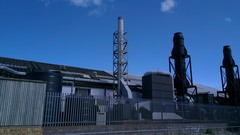 Insurance policies are worthless unless you understand and abide by their terms and conditions. However, in a guideline case, the Court of Appeal ruled that a waste processing company did just that and was entitled to an indemnity against catastrophic fire damage.
Insurance policies are worthless unless you understand and abide by their terms and conditions. However, in a guideline case, the Court of Appeal ruled that a waste processing company did just that and was entitled to an indemnity against catastrophic fire damage.
The cause of the blaze which gutted the company’s plant was a failed conveyor belt bearing. The fault caused a build-up of waste material in the bearing housing, which ignited before flames spread to the roof. The company’s insurer refused cover on the basis that a number of the policy’s conditions precedent had been breached. Those arguments failed to persuade a judge, however, who ruled that the insurer was obliged to indemnify the company against its loss.
In challenging that decision, the insurer argued, amongst other things, that the company had breached a positive obligation not to store combustible materials within six metres of machinery. In dismissing the appeal, however, the Court approved the judge’s commonsense reading of the policy.
The Court noted that the concept of storage denotes a degree of permanence and a deliberate decision to designate an area in which to place and keep material. The insurer’s interpretation of the policy, if correct, would mean that a stray piece of waste paper, no matter how small and no matter how it got there, would have the effect of negating insurance cover altogether. The judge’s interpretation of the policy and factual findings could not be faulted.

